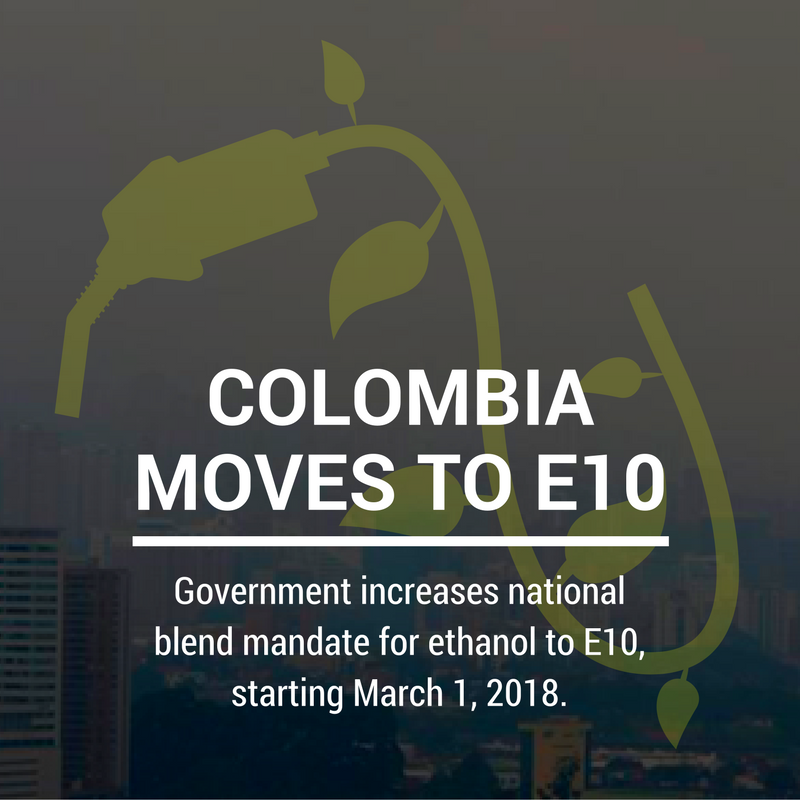The Colombian government increased its national blend mandate for ethanol to E10 as of March 1, 2018, according to an announcement by the country’s Ministry of Mines and Energy, the government authority that regulates biofuels policy.
“Sugar prices dropped considerably in early 2018, encouraging the production of ethanol,” said Marri Tejada, U.S. Grains Council (USGC) regional director for the Western Hemisphere. “While the resulting high volumes of local ethanol inventories support the increased ethanol blend mandate, the new blending standard will ultimately benefit Colombian consumers as well.”
Colombia has a growing domestic ethanol industry, producing sugar-based ethanol. Additionally, U.S. ethanol enters Colombia duty free per the terms of the U.S.–Colombia Trade Promotion Agreement, but the government’s current low-carbon fuel standard discriminates against corn-based ethanol. Still, some U.S. refineries can meet the greenhouse gas (GHG) emissions reductions required in the standard.
“The Council is working with Colombian ministries to ensure the country’s biofuels policies allow for a competitive market while also complying with the government’s GHG reduction goals,” Tejada said. “This work will continue to be important as the fuel standards become increasingly more restrictive moving forward.”
Despite these challenges, Colombia set a new record for U.S. ethanol imports in 2016/2017, purchasing more than 13 million gallons. Imports in the current marketing year (Sept. 2017-Jan. 2018) have more than doubled year-over-year to 9.62 million gallons.
Learn more about the Council’s work on ethanol here.
About The U.S. Grains Council
The U.S. Grains Council develops export markets for U.S. barley, corn, sorghum and related products including distiller’s dried grains with solubles (DDGS) and ethanol. With full-time presence in 28 locations, the Council operates programs in more than 50 countries and the European Union. The Council believes exports are vital to global economic development and to U.S. agriculture’s profitability. Detailed information about the Council and its programs is online at www.grains.org.

